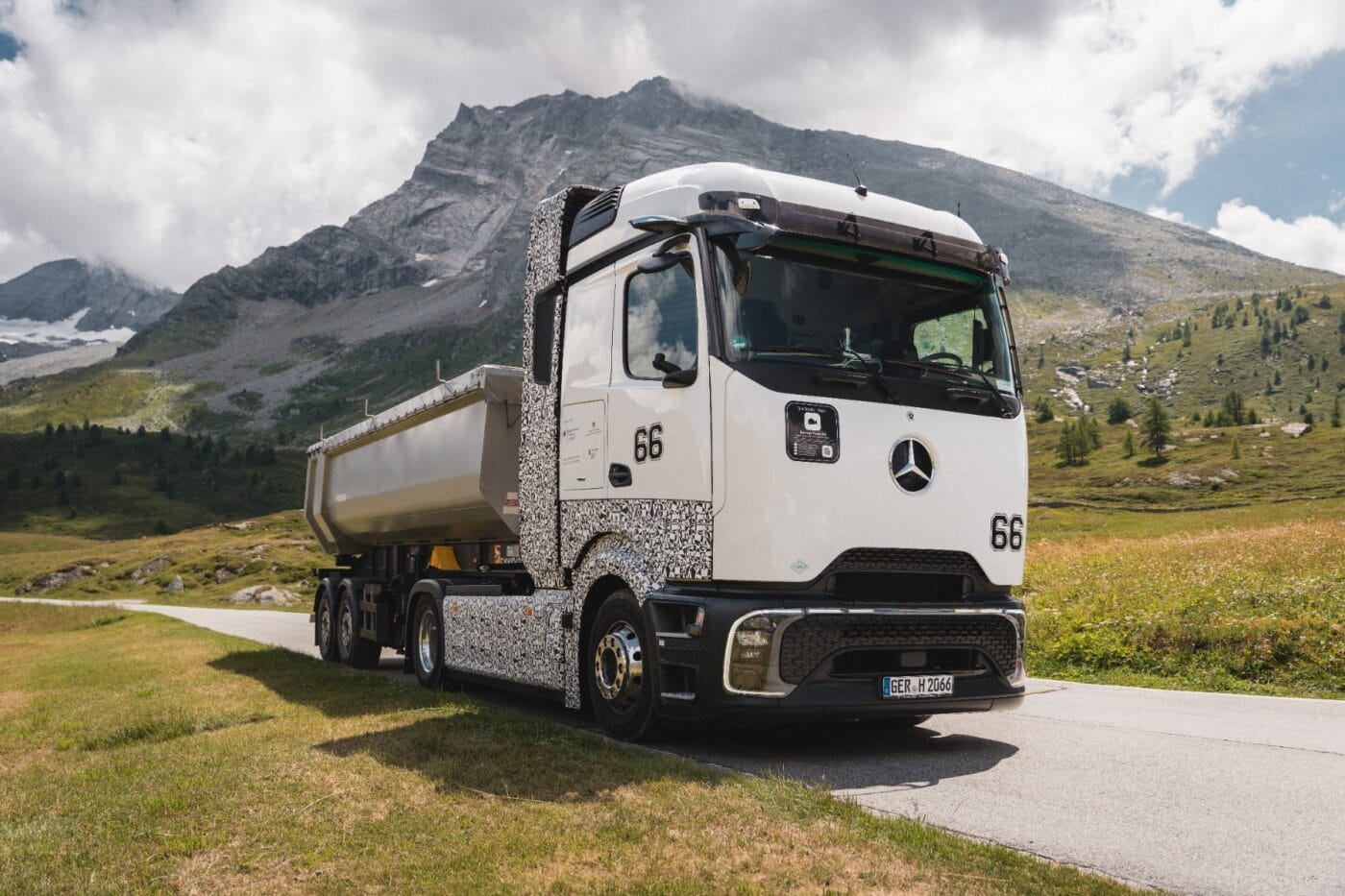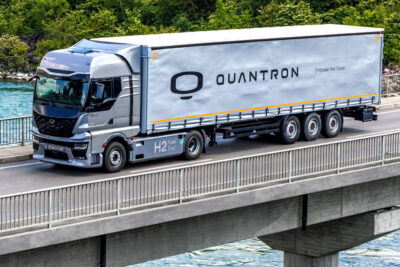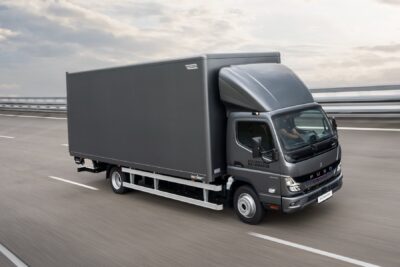Tests in the Alps: Daimler’s H2 trucks perform in the heat of summer
Mercedes’ battery-electric articulated truck, the eActros 600, is already in real-world operation across more than 15 countries. Meanwhile, the hydrogen-powered Mercedes GenH2 Truck, delayed by several years as part of the cost-cutting measures announced in July, continues to be developed at a slower pace. Daimler is not restricting decarbonisation of its model range solely to BEVs and continues work on the fuel cell truck.
After proving their winter capability in March under icy temperatures and snow, four test vehicles returned to the Swiss Alps this summer. Specifically, testing took place in Valais, where conditions are ideal for such trials. Several mountain passes run through the southern canton, ranging from 600 to 2,478 metres above sea level. Here, outside temperatures of 35°C meet thin high-altitude air.
These conditions placed components, particularly in the thermal management and cooling systems, under extreme stress. Over several weeks, the prototypes covered a total of 10,000 kilometres and climbed 146,000 metres in altitude. Test engineers focused on the electric motors, thermal management, and the interaction between the fuel cell, the buffer battery, and the H2 tank system.
The Predictive Powertrain Control (PPC) also had to prove itself on the challenging terrain. Using geodata, the system knows in advance where and when a slope occurs and adjusts power output accordingly. The fuel cell, for example, charges the battery to ensure sufficient energy is available uphill, optimising the efficiency of the entire drivetrain.
Daimler Truck reported satisfaction with the test results, stating that the powertrain proved reliable and delivered stable performance. The insights gained will inform further development. Before the H2 truck with the star enters full-scale sales in the coming decade, it must undergo field trials with selected customers to demonstrate everyday suitability.
A small series of 100 vehicles is scheduled for production next year, with deployment in logistics operations from the end of 2026. Daimler anticipates that widespread adoption of fuel cells in long-haul transport will take several more years – in Europe, large-scale production and broad deployment are not expected before the early 2030s. If it occurs at all, as current trends indicate, battery-electric propulsion remains the dominant technology for trucks.
This article was first published by Elias Holdenried for electrive’s German edition.





0 Comments